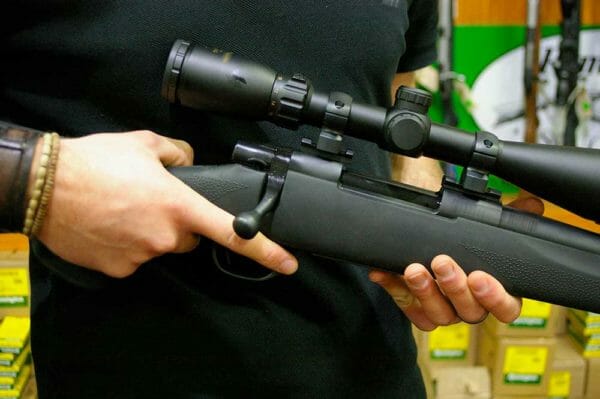Australia to Launch Continual Gun Amnesty in 2020

U.S.A. –-(Ammoland.com)- The Australian states and territories have agreed to make a continuous, ongoing amnesty for people to turn in and register guns that have previously not been registered. The continuous amnesty is expected to start in the second half of 2020. From pressreader.com:
Gun owners will be able to hand in their weapons, no questions asked, from next year, when Australia launches a national continuous gun amnesty.
All states and territories agreed to the first-ever continuous amnesty yesterday at a meeting of police and emergency services ministers in Adelaide.
Details of how the amnesty would proceed are still to be worked out. Previous amnesties have differed significantly.
One point for negotiation will be if firearms can be turned into gun shops, and the gun shops allowed to register the guns and pay the people who turned the unregistered gun in.
This helps to ensure the valuable property is not destroyed for no good reason. Another advantage of this system is the government does not have to pay for turned-in firearms. A continuous amnesty has been in place in some Australian states for a number of years.
When I observed the last nationwide amnesty, conducted in 2017, many Australians I talked to mentioned the potential of a permanent amnesty, because it offered so many advantages.
They only people opposed seemed to be the dogmatic hoplophobes. They wanted a system the made all guns into prohibited contraband, only grudgingly allowed for specific purposes for short periods of time.
That system was essentially put in place with the draconian gun laws passed in 1997, under Prime Minister Howard, who hated guns with an unreasonable passion.
During the 2017 amnesty, gun owners who already had a license could register guns they “found” and add them to their license, if they qualified.
A permanent amnesty can benefit everyone to some extent. Those who want all guns registered will have more guns registered. Gun owners will have the means to add desirable, but unregistered guns to their collections.
The government will claim it is doing something useful. There has been a strong push by gun owners in Australia to reform some of the draconian measures of the old 1997 law, such as mandating confiscation of guns and criminal charges for the most minor of law violations. One .22 cartridge found under the seat of a farm vehicle could result in confiscation of all guns and loss of a firearms license for life.
My examination of the 2017 amnesty found 20% of the guns turned in were old, broken airguns.
Having an unregistered, broken airgun in your possession carried the same sort of draconian penalties as having shotgun or rifle in your possession. There was no legal way to dispose of the item until the amnesty was approved.
There is no true “national” law about possession of guns in Australia. In Australia, the states have arguably more power than individual states in the United States. It is a strong federal system. The national firearms law consists of control of imports and exports, and an agreement between the states, which can be changed at will.
It would be nice if the new agreement between the states would eliminate some of the silly parts of the old agreement, such as treating air rifles the same as high powered hunting guns; making it harder to legally own a slingshot or crossbow compared to a hunting rifle; and making the export of private arms exceptionally difficult and costly.
It does not seem likely to happen, but the new administration seems a bit more reasonable than the last one.
About Dean Weingarten:
Dean Weingarten has been a peace officer, a military officer, was on the University of Wisconsin Pistol Team for four years, and was first certified to teach firearms safety in 1973. He taught the Arizona concealed carry course for fifteen years until the goal of constitutional carry was attained. He has degrees in meteorology and mining engineering, and recently retired from the Department of Defense after a 30 year career in Army Research, Development, Testing, and Evaluation.
